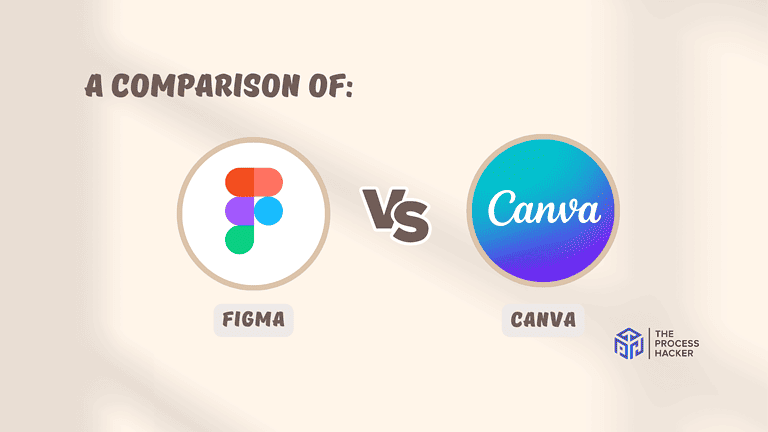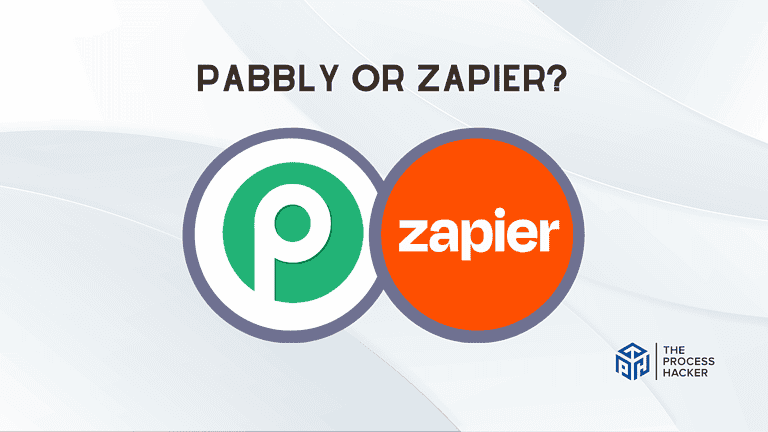Cybersecurity Best Practices for Small Businesses
You’ve heard those scary cybersecurity stories – businesses being held hostage by ransomware, hackers stealing customer data, and small companies going out of business after a cyberattack.
As a small business owner, it’s easy to think, “That will never happen to me.” But the truth is that cybercriminals are targeting small businesses more than ever. Why?
Because many smaller companies don’t have sophisticated security systems in place, you might be thinking your little business doesn’t have much worth stealing… but hackers don’t care about the size of your company – they’re only after that sweet, sweet ransom money or your client’s credit card numbers.
In this post, I’ll share the cybersecurity best practices you can start implementing today to help protect your business, whether you’re a solopreneur running the whole show solo or have a team helping out.
Keep reading to discover how to block the baddies and keep your business in business!
What is Cybersecurity?
Cybersecurity refers to the practice of protecting computer systems, networks, and data from attacks or unauthorized access. It involves a combination of technologies, processes, and practices that aim to prevent, detect, and respond to threats.
As the use of technology has become more prevalent in the business world, cybersecurity has become increasingly important. Without proper protection, businesses are vulnerable to cyber attacks that can result in data breaches, financial losses, and damage to their reputation.
Why is Cybersecurity Important for Your Business?
No matter the size of your company, you likely handle sensitive information daily – whether it’s financial records, personal data from clients or employees, or trade secrets. This information is valuable to hackers who are constantly looking for ways to exploit vulnerabilities and gain access to this data. If successful, they can use it for their own gain or sell it on the dark web for a profit.
Especially in today’s digital world, small businesses are increasingly becoming prime targets for cybercriminals. Contrary to the belief that cyber threats are mainly a concern for large corporations, small businesses are perceived as low-hanging fruit due to their typically weaker cybersecurity defenses.
In a Guardz report cited by Help Net Security, 57% of small and medium enterprises (SMEs) surveyed have experienced a cybersecurity breach. 31% of respondents also stated that their business had been targeted by a breach in the past year.
The consequences of a cyber attack on a small business can be devastating, ranging from financial losses to reputational damage and legal liabilities. Data from the Ponemon Institute reveals that the average cost of a data breach for a small business stands at $2.98 million, a sum that can be catastrophic for many smaller enterprises.
What Are Best Practices for Cyber Security?
Given these growing threats, small businesses must implement effective cybersecurity strategies. Here are several best practices that can help safeguard small businesses against cyber attacks.
#1) Regularly back up data
Ransomware attacks, where attackers encrypt business data and demand payment for decryption keys, have surged in recent years. Thus, regular data backups are a fundamental aspect of any cybersecurity strategy.
Worryingly, an article from IT Pro indicates that ransomware gangs intentionally target smaller organizations. Across the first half of 2023, SMEs accounted for 575 attacks using LockBit’s ransomware.
Data backups ensure that in the event of a cyber attack, such as a ransomware attack, a business can restore its operations without succumbing to cybercriminals’ demands. To effectively back up data, small businesses should follow the 3-2-1 rule:
- Keep three copies of the data,
- On two different storage types, with
- One copy is stored offsite.
This approach minimizes the risk of data loss due to hardware failures, cyberattacks, or natural disasters.
#2) Install a VPN
A virtual private network (VPN) is an essential tool for securing online activities. VPNs encrypt every internet connection, making it difficult for cybercriminals to intercept and exploit sensitive data.
A VPN is particularly important for preventing phishing attacks. HTTPS phishing attempts involve tricking individuals into divulging confidential information by posing as trustworthy entities, such as banks or e-commerce websites. These attacks can lead to data breaches and financial losses as information is stolen by malicious actors.
NordVPN, a leading VPN service, offers robust protection against phishing and other types of attacks. In fact, the company’s Threat Protection Pro system has just been certified by the independent body AV-Comparatives as an anti-phishing tool. NordVPN’s scam-spotting capabilities were thoroughly tested by the Austrian organization, achieving an 85% accuracy rate and reporting a perfect score of zero false positives. This VPN’s reliability means that small businesses can confidently navigate the internet without worries.
#3) Enable automatic security patching
Software vulnerabilities are a common entry point for cybercriminals. These vulnerabilities may exist in operating systems, applications, and even hardware.
Cyber attackers often exploit these weaknesses to gain unauthorized access to business networks. However, the good news is that the Ponemon Institute found that better patch management can prevent nearly 60% of data breaches.
For this, the US Chamber of Commerce strongly suggests enabling automatic security patching. This guarantees that software updates and patches are installed promptly, closing potential security gaps.
Thus, small businesses should configure all systems, including operating systems, applications, and firmware, to receive and apply updates automatically. This proactive approach helps prevent cyber attackers from exploiting known vulnerabilities.
#4) Strengthen your cybersecurity team
As cyber threats evolve, having a dedicated team to manage and respond to security incidents is crucial. However, small businesses often lack the resources to maintain a full-time cybersecurity team.
One cost-effective solution is to hire a fractional Chief Information Officer (CIO). A fractional CIO is an experienced cybersecurity professional who works as a part-time consultant for multiple organizations.
They bring strategic expertise and can help small businesses develop and implement comprehensive cybersecurity plans. Depending on an SME’s needs, they can conduct risk assessments, establish security policies, oversee security training, and ensure compliance with regulations. One key strategy includes creating separate user accounts for each employee on the corporate network to enhance security.
By leveraging the skills of a fractional CIO, small businesses can benefit from high-level cybersecurity expertise without the financial burden of a full-time hire. With a fractional CIO, organizations can enact cybersecurity measures that are aligned with business objectives and are robust enough to counteract emerging cybersecurity threats. Utilizing password management tools is also recommended to strengthen security practices and manage credentials effectively.
#5) Purchase cyber insurance
Despite best efforts to prevent cyber attacks, no security measure can guarantee complete protection. Cyber insurance provides a safety net for small businesses, covering financial losses and recovery costs associated with cyber incidents.
Some cyber insurance companies even go beyond helping SMEs financially recover. For example, Resilience’s cyber risk solutions include breach and attack simulation (BAS) tests to validate security controls, as well as a cybersecurity risks profile builder for reviewing risk posture data.
In a press release, Resilience CEO Vishaal Hariprasad said that 96% of Resilience Edge Solution policyholders avoided claims with incurred losses. Moreover, 85% of the company’s clients who experienced ransomware attacks could dodge paying a ransom in 2023.
#6) Secure network and devices
To safeguard your network and devices effectively, it’s essential to implement robust security measures. Utilizing firewalls, antivirus software, and intrusion detection systems offers a strong defense against potential cyber threats. Incorporating a secure wireless access point is also pivotal to maintaining the integrity of your network.
You can control physical access to your devices, and the locations where they are used help prevent unauthorized interactions. It’s equally important to ensure that all your devices—whether they’re computers, mobile phones, or IoT devices—are consistently updated.
Regular updates provide the latest security patches, which are crucial in protecting your digital environment from emerging vulnerabilities and attacks. Additionally, managing your Wi-Fi network settings, including changing the Service Set Identifier (SSID), enhances network security.
You can maintain a secure and resilient business infrastructure by adhering to these cybersecurity practices and staying vigilant and proactive.
#7) Use strong passwords and multi-factor authentication (MFA)
Implementing strict policies that require complex passwords is a foundational step in securing your business’s digital assets. These passwords should be updated regularly to further enhance security.
Alongside strong passwords, integrating multi-factor authentication (MFA) across all critical systems and accounts fortifies your defenses, adding an additional layer of security. By adopting MFA, you ensure that the additional authentication steps can prevent unauthorized access even if a password is compromised.
This dual approach is not only recommended but essential for maintaining the integrity and security of your business operations.
#8) Perform regular security audits
Conducting regular security audits is a crisis management practice to ensure your business remains protected against cyber threats. These audits help you identify and address vulnerabilities before they can be exploited.
In addition to routine checks, you should also perform penetration testing. This involves simulating cyber attacks on your systems to evaluate the effectiveness of your existing security measures.
By regularly assessing your security landscape, you can make informed adjustments and strengthen your defenses, ensuring the security of your business’s assets and critical data.
Final Thoughts on Cyber Insurance for SMBs
Cybersecurity is no longer a luxury but a necessity for small businesses in this digital age.
With cyber threats becoming more sophisticated and prevalent, SMBs cannot afford to turn a blind eye to their cybersecurity posture. By implementing the best practices discussed above, such as creating strong passwords and regularly updating software, businesses can take significant steps toward enhancing their cybersecurity.
However, let’s not forget that cybercriminals are constantly evolving their tactics, so staying vigilant and proactive is vital. Remember, your business’s success and reputation are at stake here. So don’t wait until it’s too late to fortify your defenses against potential cyber-attacks.
As they say, “prevention is better than cure,” especially when it comes to digital security! Stay safe and secure in cyberspace.







